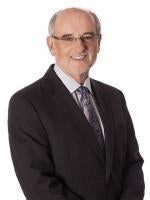On March 20, 2020, the Federal Communications Commission (FCC) issued a Declaratory Ruling in which it confirmed that the COVID-19 pandemic constitutes an “emergency” under the Telephone Consumer Protection Act (TCPA) (47 U.S.C. § 227) and the FCC’s implementing regulations (47 C.F.R. § 64.1200). See Rules and Regulations Implementing the Telephone Consumer Protection Act of 1991, Declaratory Ruling, CG Docket No. 02-289, released March 20, 2020. Those laws provide that an entity may not use autodialed calls (which include voice calls and text messages) or prerecorded or artificial voice calls (commonly known as robocalls) to place calls to telephone numbers (residential or wireless) unless the caller has received prior express consent of the called party or an exception is applicable. By declaring the COVID-19 pandemic an emergency, public health authorities, including hospitals, health care providers, and state and local officials, can effectively communicate important information to the public without any concern about violating the TCPA.
The TCPA and the FCC’s regulations protect consumers from receiving unwanted robocalls by requiring callers initiating calls through use of autodialers or prerecorded or artificial voice to wireless telephone numbers to obtain prior express written consent for telemarketing calls and prior express consent for informational calls. Prior express written consent is required for prerecorded or artificial voice calls with a telemarketing purpose placed to residential telephone numbers, but no prior consent is required for any type of robocalls with an informational purpose placed to residential telephone numbers. However, the foregoing consent requirements are not applicable when calls are made for “emergency purposes.” The FCC’s rules define “emergency purposes” as “calls made necessary in any situation affecting the health and safety of consumers.” (47 C.F.R. § 64.1200(f)(4)) The FCC has explained that this exception is intended for “instances [that] pose significant risks to public health and safety, and [where] the use of prerecorded message calls could speed the dissemination of information regarding . . . potentially hazardous conditions to the public.” See Rules and Regulations Implementing the Telephone Consumer Protection Act of 1991, Report and Order, 7 FCC Rcd 8752, 8778, ¶ 51 (1992).
In the Declaratory Ruling, the FCC details the following types of callers and calls related to the COVID-19 pandemic that fall within the emergency purposes exception to the TCPA’s consent rules:
-
The caller must be from a hospital, health care provider, state or local health official, or other government official or a person under the express direction of such an organization and acting on its behalf.
-
Such calls would include a call originating from a hospital that provides vital and time-sensitive health and safety information to slow the spread of the COVID-19 disease; a call on behalf of a healthcare provider that informs the public about measures to address the current pandemic; or a call made by a county official to inform citizens of shelter-in-place requirements, quarantines, medically administered testing information, or school closures related to the pandemic.
-
-
The content of the call must be solely informational, made necessary because of the COVID-19 outbreak, and directly related to the imminent health or safety risk arising out of the COVID-19 outbreak.
-
Calls advertising a commercial grocery delivery service, health insurance, cleaning services, or home test kits are not encompassed by the TCPA’s emergency purpose exception.
-
Calls made to collect debts related to healthcare treatment do not constitute calls made for an emergency purpose.
-
In summary, the FCC has confirmed that certain entities considered to be public health authorities (such as hospitals and public health officials) may utilize robocalling to disseminate important information about the COVID-19 disease. The FCC has not stated that all callers and call content related to the COVID-19 pandemic qualify for the TCPA’s emergency purpose exception. The fact that a healthcare entity initiates a call and that the content of the call includes statements related to the pandemic is not sufficient. For example, a pharmacy may not rely on the emergency purpose exception to initiate autodialed calls that promote or encourage the purchase of hand sanitizer or testing kits, even though such products and services may be helpful during the pandemic.
Finally, the FCC advises that it has become aware of fraudulent robocalls, such as text messages and automated calls offering free home testing kits and promoting bogus cures. The FCC is monitoring complaints about such calls and will initiate enforcement actions as appropriate.




 />i
/>i

